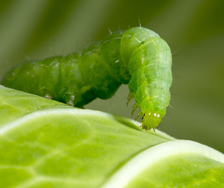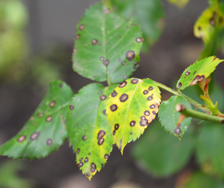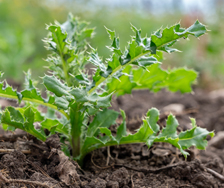Yates Account
Join now
Create a Yates account today!
Sign up to join the Yates Garden Club for monthly e-mails packed with seasonal inspiration, tips for success & exclusive promotions.
Plus if you’re a Garden Club member you can take part in the Yates Growing Community - a blog to share successes, get advice & win prizes in fun challenges along the way!

Forgot password
Enter the email address associated with your account, and we'll email you a new password.

There’s a good reason citrus trees are such a common sight on a back lawn: their fresh, juicy fruit tastes sensational, it’s incredibly versatile for eating and drinking…and it’s good for you! Fresh-picked, home-grown citrus simply can’t be beaten.
We get lots of questions about citrus trees, so we thought we’d set out the pros and cons for the most popular varieties. Here's our handy guide to help you choose which variety to grow at your place.
NZ’s subtropical climate zone is the sweet spot for citrus, because they thrive in areas without frosts. Most citrus varieties will cope with conditions throughout the North Island and upper South Island. If you’re in a cooler area, it’s wise to grow citrus in sheltered conditions, or in movable pots so you can protect them from hard frosts.
If you’re looking for planting tips for a new citrus tree, have a look here.

DNA studies suggest the very first citrus trees evolved somewhere in India. People have been growing and crossbreeding citrus for literally millions of years, so the story of how we ended up with so many diverse modern-day species remains mysterious.
Most of our popular present-day cultivars are descended from three ancestral species: citron (Citrus medica), mandarin (Citrus reticulata) and tropical pomelo (Citrus maxima). These ancient species have a long history of being combined and hybridised, so along the way they birthed oranges, lemons, limes, and grapefruit.
One of the best features of citrus is fragrance; did you know bergamot (Citrus bergamia) and lemons are classic ingredients that add sparkle to perfumes? Citrus fruit contains limonoids and flavonoids in the rind that deliver the aromatic punch in citrus zest. The classic zingy citrus taste is due to the combination of tart citric acid and mouth-puckering ascorbic acid (Vitamin C).

Bergamot orange is the 'secret ingredient' in Earl Grey tea.
Popular Varieties: Pros and Cons + Tasting Notes
Most citrus varieties can be grown throughout NZ. Sites that don’t experience frosts can grow any variety that appeals - but in the coldest regions of the country, it’s best to stick to the hardier options, plus be prepared to protect trees from hard frosts.
- The fragrant ‘Eureka’ lemon offers an intense acidic tang; it’s a great choice for cooking when you want punchy citrus flavours to dominate. Fruit is thin-skinned, virtually seedless and ‘Eureka’ produces fruit almost year-round in warm areas. These relatively thornless trees can grow up to 5m tall and wide, although you can trim them during winter to stay at a more manageable size. As lemons go, ‘Eureka’ isn’t very frost tolerant, so it's recommended for frost-free sites.
- ‘Villa Franca’ is a close relative of ‘Eureka’ that also offers a sharply acidic taste, but it’s hardier, so it’s a more versatile option to cope with light frosts. The pale-coloured fruit is large, very juicy and has a tangy rind, making this a popular lemon for culinary use. ‘Villa Franca’ produces most fruit during winter. Trees grow to 3m tall and 2.5m wide. They don’t have many thorns and usually won’t need any thinning.
- The ‘Genoa’ lemon is a thornless cultivar originally from Italy, that produces fruit from July to December. It’s also quite similar to ‘Eureka’ but has better frost-tolerance. Fruit is sharply acidic and juicy, nearly seedless and a distinctive shade of yellow, with a chartreuse-green tinge to it. ‘Genoa’ has dense foliage and a broad canopy that reaches 3m in width.

'Lisbon' Lemons
- The classic Kiwi lemon, ‘Meyer’ is famed for cold tolerance, so it’s used widely in frosty areas. Once it gets going, it’s a spectacular cropper and very easy to care for. ‘Meyer’ is thought to be a cross between a lemon and an orange, so it’s sweeter tasting than ‘true’ lemons. Fruit is large, soft-skinned and has a distinctive yellowy-orange colour. Trees will grow to 3m tall and wide, but don’t mind being trimmed to keep them compact. It’s a great choice for a pot.
- ‘Lisbon’ originated from old Portuguese cultivars taken to Australia by early settlers. It develops into a large, thorny tree that produces a heavy winter crop. It’s quite hardy and more tolerant to temperature extremes than most lemons. If you’re in a colder area, this the one to go for if you want a sharply acidic ‘true lemon’ taste. ‘Lisbon’ has dense foliage and an upright growth habit, reaching 3m in height and 2.5m wide.
- ‘Yen Ben’ lemons produce fruit throughout the year, although the yield is best during winter. The smallish pale yellow fruit is juicy and thin-skinned, with very few seeds. ‘Yen Ben’ seems to have been selected from 'Lisbon' cultivars in Australia, so it also has a lovely sharp ‘proper lemon’ flavour. Trees reach 3m high and wide and are quite thorny. ‘Yen Ben’ will tolerate a light frost but should be protected from heavier frosts.

Yuzu lemons
- The very popular 'Lemonade' (Citrus limon x reticulata) is a natural hybrid of a lemon and a mandarin, claimed to have been discovered by chance and cultivated here in New Zealand during the 1980s. Fruit is highly scented and surprisingly sweet, with just a touch of acidity. Due to its mandarin ancestry, it’s very easy to peel. Trees reach about 2.5m in height and width and produce excellent yields of fruit. It's also available on compact dwarf rootstock that’s perfect for a pot. ‘Lemonade’ will grow in all but the coldest areas of the country.
- Yuzu lemons are a hybrid of the ichang papeda (Citrus cavaleriei) and mandarin. Yuzu is extremely tart; it lends zesty flavour to many traditional Asian dishes. Fruit is about the size and shape of a golf ball; it even has dimples! Trees grow to about 3m high and are studded with fearsome thorns.

Mandarins
- Juicy mandarins are well-suited to growing in temperate areas. Favoured varieties include ‘Burgess Scarlet’ (fruits from June-August), ‘Richards Special’ (has especially large fruit, ripens June-July) and old favourite ‘Clementine’ (begins to ripen in July, keeps fruiting for months). Pair up any of these varieties with ‘Encore’ (ripens October-February) or ‘Afourer’ (September-February) to extend your harvest season right into summer.
- In cooler temperate areas, Satsumas (Citrus unshiu) are an excellent choice. The fruit has very few seeds, the rind is always easy to peel and the kids can pull the segments apart without getting covered in juice. Popular varieties include ‘Miyagawa’ (an early-season type that ripens May–August), ‘Miho’ (also early, harvest June-September, reputed to be an abundant cropper), ‘Silverhill’ (ripens May-June) and ‘Kawano’ (ready to harvest June-July, forms especially large fruit). You can pair up varieties with overlapping seasons to extend your fruiting season for as long as possible.
- Succulent and flavoursome ‘Kiyomi’ (harvest July-August) is a tangor, a hybridised cross between a mandarin and an orange.
- ‘Bay Sweetie’ is a scrumptious mandarin/tangelo hybrid, bred in New Zealand to thrive in our local climate. If you’re beginning to notice a theme…yes, tangelos themselves are also hybrids; they're the offspring of a mandarin and a grapefruit. ‘Seminole’ is a popular tangelo choice in NZ.

The 'Kiyomi' tangor
- The best oranges for temperate areas include juicy ‘Navelina’ (early harvest, August-September), bright ‘Blood Orange’ (August-September), sweet ‘Washington Navel’ (September-November), ‘Harwood Late’ (November-February) and ‘Valencia’ (November-February). If space permits, teaming up these varieties in your garden will provide you with delightful oranges over many months. Alternatively, most of these varieties will be available in dwarf form; they make very attractive potted trees in a small garden.
- The two most popular lime trees in New Zealand are the classic Tahitian lime (ripening June-August) and the Bearss lime (also ready from June-August). Did you know zesty limes are natural hybrids? They’re a cross between a key lime and a lemon. These two favourite varieties are quite similar, as the Bearss lime was originally developed as a selection of the Tahitian lime. Now that the Bearss lime has been around for a century or so, it’s fair to say it’s an heirloom! Although Tahitian limes are quite sensitive to cold weather, the Bearss is better adapted for the NZ climate. For gardens that experience occasional light frosts, a Bearss lime is a safer bet for delivering a good harvest.
- The Makrut lime (Citrus hystrix) is a compact and attractive tree, that forms small knobbly, warty-looking fruit. The most enticing harvest from this tree is the fresh leaves; along with the zest, they’re used to add bright aromatic flavour notes to Southeast Asian dishes. Makrut limes are frost sensitive, but otherwise easy to care for.

Tahitian limes
- A finger lime (Citrus australasica) is ideal for Northland gardens, as it’s a real warmth-lover. The fruit pulp has distinctive and unusual bubbly-looking ‘pearls’, so it’s also known as ‘caviar lime’.
- The Buddha’s hand (Citrus medica var. sarcodactylis) is a type of citron, best suited for a sunny position in a frost-free area. The bright yellow fruit is intriguingly shaped like a hand with fingers; it's almost entirely made up of rind. The peel, rind or zest can be used as an aromatic ingredient for food and drinks.
- Grapefruit varieties will cope with a frost once they’re established. Yellow fleshed grapefruit like ‘Golden Special’ (July - November) are sweet-tasting with a subtle tartness, but no trace of bitterness. Orange fleshed ‘Cutlers Red’ (harvest July-August) is a typically juicy, sweet but ever-so-slightly-tart grapefruit. Pro Tip: a gentle reminder to those taking blood pressure medication: don't be naughty, grapefruit isn’t for you.

Finger limes

Makrut limes and leaves
Choosing the Site
Citrus trees need plenty of sun and good drainage: anything less will compromise the productivity of the tree. They do best in a spot that’s sheltered from wind. If the soil is heavy, you can dig in generous amounts of organic matter and gypsum, or build a raised bed to improve the situation.
Of course, the easiest remedy for poor soil is to choose a dwarf variety and grow it in a pot! Most of the popular dwarf lemons available are grafted onto a rootstock called ‘Flying Dragon’, that restricts their size by about half. Potted trees should always be grown in a good quality potting mix (like Yates Premium Potting Mix) and moved into larger containers as they increase in size.
Citrus trees planted out into the ground absolutely hate competition, so remove any grass from around the base and keep the root zone area covered with a light organic mulch. Don’t put mulch right up against the trunk (leave a small gap around it) so it doesn’t create the ideal conditions to encourage collar rot.

The Buddha's hand citron
Fertilising
Feed your citrus with Yates Thrive Citrus & Fruit Granular Plant Food regularly throughout the year, in early spring, summer and again in autumn. Sprinkle it over the root zone of your tree and water it in - it will release nutrients gradually for up to 12 weeks. It's also boosted with Magnesium, an important trace element for citrus health.
Alternatively you can use a fast-acting liquid feed, like Yates Thrive Citrus Liquid Plant Food. It's very easy to use, plus it takes care of the tree's watering and feeding needs, in a single job. Contains additional micronutrients to provide a balanced diet for a citrus.
If you like the fast results of a liquid format, but you prefer a plant food that's fortified with natural ingredients: Yates Thrive Natural Citrus & Fruit Plant Food is the one for you. Most of the ingredients are naturally-derived, including cold-processed fish, seaweed, humates, molasses and beneficial microbes.
In addition to your fertiliser of choice, it's wise to apply a small amount of trace element mix each year, like Yates Health Tonic Trace Element Chelates. This is good insurance to make certain the tree has all the micronutrients it needs for peak production. If your garden soil is low in any of the critical trace elements, this tonic will compensate by delivering a balanced dose of trace elements directly through the foliage. The foliar application reduces the risk of overdoing it and causing accidental soil toxicity.

Satsuma mandarins
Tackling Common Problems
Apply Yates Nature's Way Organic Citrus, Vegie & Ornamental Spray regularly, especially through late summer and autumn, to control scale, aphids, whitefly, thrips, caterpillars, ants, earwigs and leaf hopper infestations. It's easy to use and always ready to go when you are.
Yates Conqueror Oil is a great alternative to control scale, aphids, mealybugs and mites on larger trees, as it's an economical concentrate format.
For potted citrus, the Yates Insect Gun is a ready-to-use solution to keep handy, for aphids, caterpillars, thrips, earwigs, whitefly and leaf hoppers.
Black sooty mould on citrus leaves is a symptom that sucking insects are attacking the tree. Sooty mould grows on the sweet honeydew that sucking insects excrete after they have extracted nutrients from the tree sap. If you control the underlying problem, the sooty mould will lessen over time - or you can apply
Control disfiguring verrucosis (citrus scab) on fruit with Yates Copper Oxychloride, or Yates Nature's Way Fungus Spray.

















Share
Share this article on social media